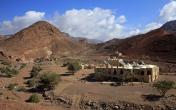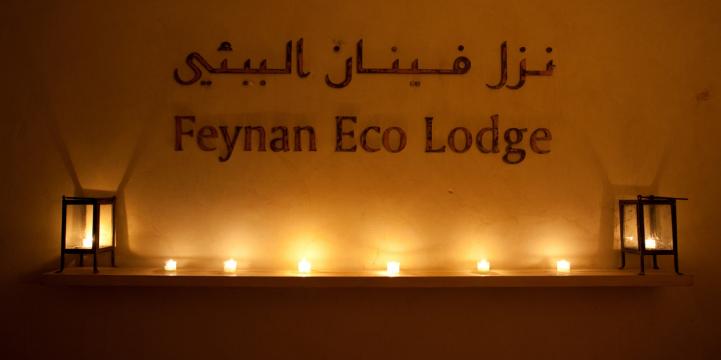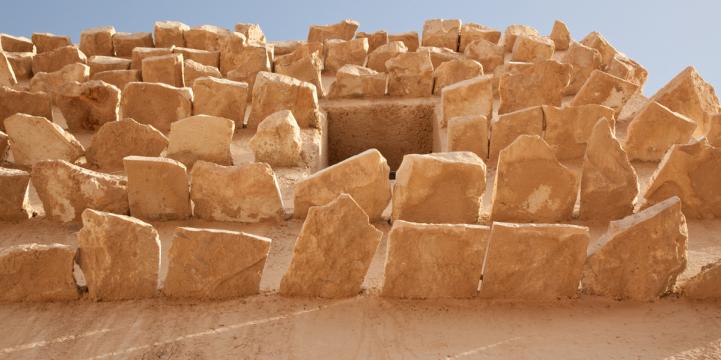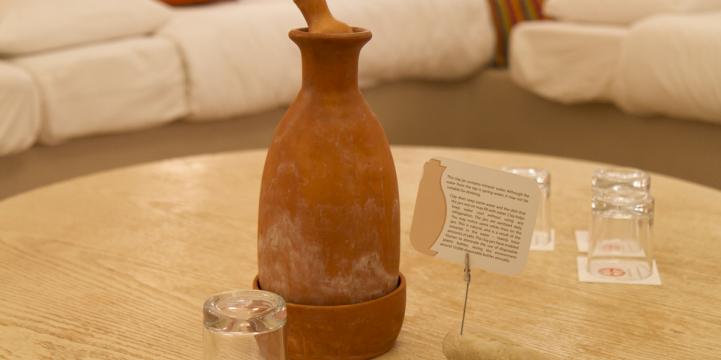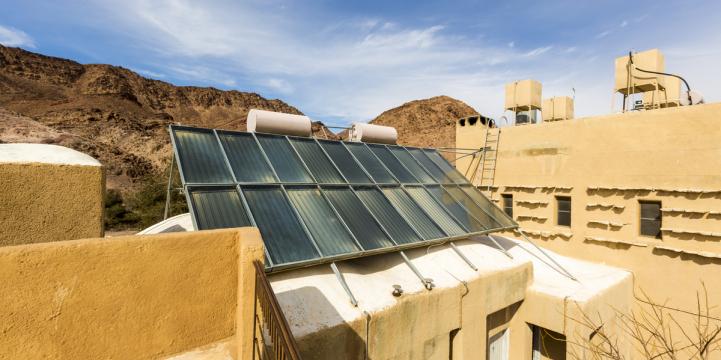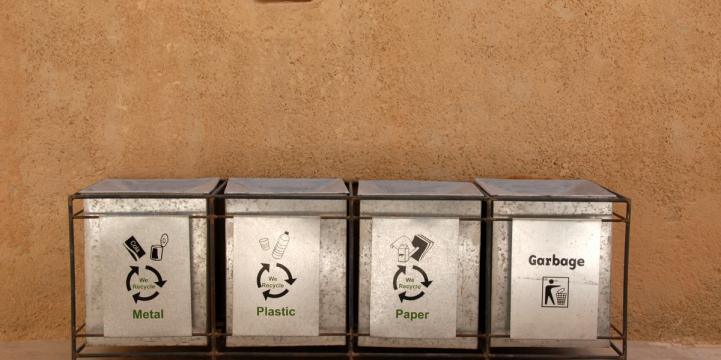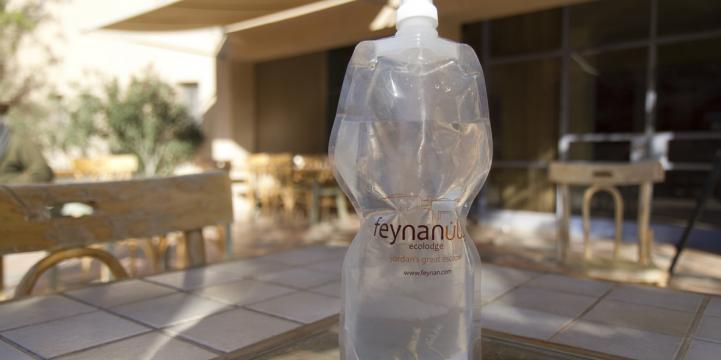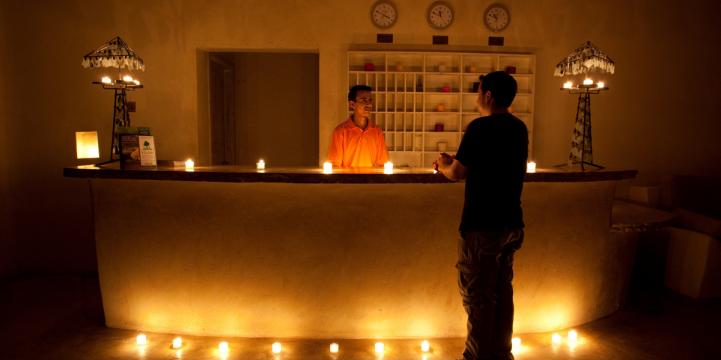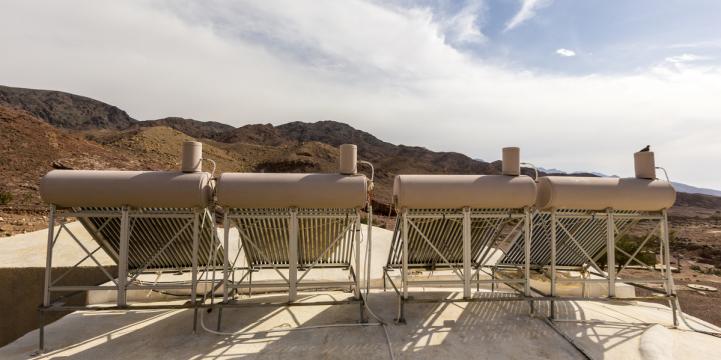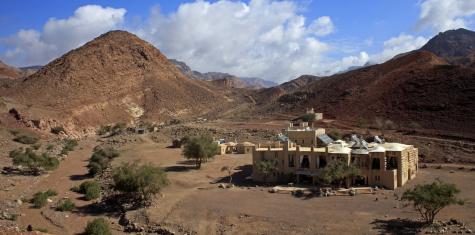The tourism sector is moving more and more towards sustainability as travellers start noticing the impacts both positive and negative that they have on the countries they visit. Feynan Ecolodge is a pioneer in sustainable travel in Jordan, taking green credentials to an advanced level, and ensuring that your stay with us will have the least negative impacts on the environment and the best positive impacts on the local community.
At Feynan Ecolodge, we strive to achieve environmental excellence and are the pioneers in Jordan in our ethos towards the environment. That said, environmental sustainability is an ongoing challenge to achieve while also meeting the expectations and needs of our guests. We believe that part of our role in preserving the environment is to educate our guests and encourage them to think about what they can do at home to minimize their carbon footprint.
Funding conservation
A portion of Feynan’s income is spent on conservation efforts at the Dana Biosphere Reserve managed by the Royal Society for the Conservation of Nature (RSCN). Established in 1989, Dana Biosphere Reserve is Jordan’s second largest nature reserve, covering some 320km2 of rugged and beautiful landscape along the face of the Great Rift Valley. Dana Reserve is important because it contains the highest level of biodiversity in Jordan.
The management of Dana Biosphere Reserve aims to balance the need to protect the environment with the needs of the local people living in and around the reserve. In Dana, the management plan is mostly based on the concept of ‘zoning’ which defines the areas where certain activities can or cannot happen.
As well as applying and enforcing the zoning rules, money from guests staying at Feynan goes towards other conservation activities in the reserve including:
- Patrolling and law enforcement to minimise threats on species and habitats, for example hunting or cutting down trees;
- Research and monitoring to understand biodiversity, habitats and population trends. In particular using phototrapping (motion sensor cameras) to understand and record animal populations. Some species in the Reserve are only known to exist due to the use of phototrapping;
- Relieving the environmental pressure of over-grazing by providing more diverse job opportunities - for example jobs in ecotourism, handicraft workshops and as Reserve rangers;
- Ecotourism initiatives to generate income for nature conservation and encourage the involvement of local communities in sustainable nature-based activities that value their natural and cultural heritage;
- Awareness and education locally, nationally and for visitors to raise support for conservation activities in Jordan and more generally.
Minimal environmental footprint
Feynan Ecolodge was designed to operate in harmony with its habitat and is operated in a way which minimises the impact of tourism on the surrounding natural environment. It is the most advanced ‘eco’ accommodation in Jordan and employs a wide range of different technologies and programmes aimed at leaving the smallest possible environmental footprint.
Energy
Solar power: Feynan is not connected to the electricity grid. It generates 100% of its own electricity through solar/photovoltaic (PV) panels mounted on the roof top and electricity is stored in batteries. In order to efficiently utilize stored energy, only essential electrical appliances are used, and those employed are certified to use very low amounts of energy. The kitchen, washrooms and office are the only areas electrically lighted with low energy CFL and LED bulbs. Appliances such as the refrigerators in the kitchen are Energy Star (US rating) or A/A+ (EU rating) certified. Our laundry is air dried, reducing the need for energy consuming driers. Daily electricity use is restricted to 16-18 KWhr, less than a typical two bedroom apartment in Amman.
Solar heating: To heat water, an extensive solar heating system is in place that provides all necessary hot water for the kitchen, guests, and washing machines (the washing machines do not heat water electrically).
Heating: Feynan is quite warm and only requires heating for a short part of the year. For 60-90 evenings each winter, waste from olive pressing known as jift in Arabic or olive pit charcoal is burned in the two fireplaces at the lodge to provide heat. This preserves Jordan's trees and utilizes a renewable source of energy that is a natural by-product of Jordan's annual olive harvest.
Water
Limited water consumption: Jordan is one of the world’s most water poor countries. The lodge sources its water from local spring water near Wadi Dana. Kitchen water use is strictly controlled while aerators limit water flow from room faucets.
Waste
Composting: To minimize waste and utilize resources, the lodge has composting facilities where uncooked food excess and waste are transformed into organic fertilizer.
Recycling waste: Although only minimal amounts of paper and plastic are used on site, most waste is recycled and recycling bins are placed in convenient locations around the lodge for guests to take part in this important initiative.
Eliminating PET disposable water bottles: Feynan limits its use of plastic and encourages our guests to do the same. We offer water to our guests in locally produced clay jars to eliminate disposable plastic water bottles. Reusable water bottles are also available for our guests to take on hikes and excursions. We also have a complimentary filling station for guests to re-fill bottles at the lodge. By changing its policy Feynan has managed to eliminate the use of 13,000-15,000 PET disposable water bottles from the environment annually.
